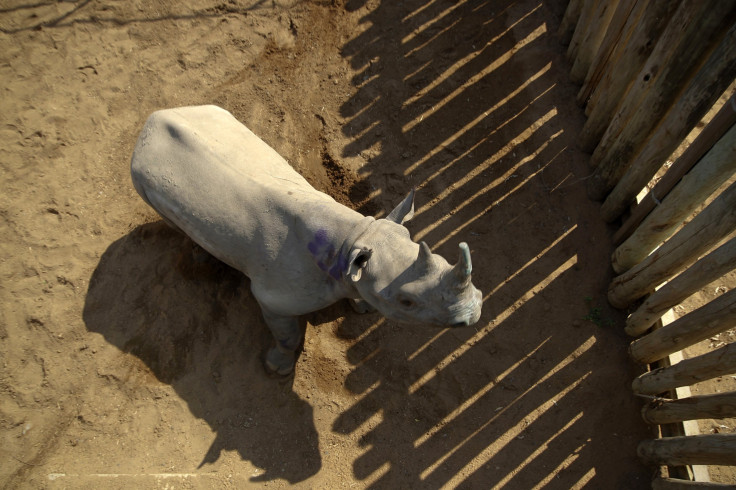Rhino Poaching In South Africa Reaches Record Levels

In the first four months of 2015, a record 393 rhinos were killed by poachers in South Africa, marking an 18 percent rise over the same period last year, the country’s environment minister said, during a public briefing on Sunday. Rhino poaching in South Africa has been surging since 2008, when 83 rhinos were killed.
Of the 393 rhinos killed in the first four months of 2015, 212 were poached in Kruger National Park, famous for its population of white and black rhinos. The park, which borders Mozambique, also houses the majority of South Africa’s 20,700 rhinos. South Africa is home to 83 percent of Africa’s rhinos and 73 percent of all wild rhinos in the world, according to U.K.-based Save the Rhino International.
“We are soldiering on, we do think that this fight will have to be won and we will win it,” Environment Minister Edna Molewa reportedly said, during Sunday’s press conference in Pretoria.
In recent years, a growing demand for rhino horns in Asian countries, mainly China and Vietnam, for their purported medicinal properties, has led to a drastic surge in rhino killings, according to figures released by conservation groups.
South Africa’s police commissioner, Riah Phiyega, reportedly said that as of the end of April, park rangers had detained 132 suspected poachers. In 2014, 386 poaching related arrests were made in the country.
However, this has evidently failed to deter poachers. It is believed that the high price fetched by the sale of rhino horns in Asian nations has led to the involvement of criminal syndicates that use high-tech equipment to track down and kill the rhinos.
A kilogram (2.2 pounds) of rhino horn sells for up to $100,000 in Vietnam, which is almost double the price of gold, according to media reports.
In order to get a handle on the poaching crisis in the country, the South African government has also considered legalizing the trade of rhino horns, even though international trade in rhino horns has been banned since 1977 under the Convention on International Trade in Endangered Species of Wild Fauna and Flora.
While supporters of the legalization believe that it would bring down the prices of the horns and make the trade less lucrative for poachers, many wildlife conservationists and activists disagree.
“It is important to emphasize that South Africa has not taken a position on the issue and will not do so until the committee has completed its work and presented its findings,” the country’s environment ministry said in February, after appointing a 21-member task force to look into the various aspects of legalizing trade in rhino horns.
© Copyright IBTimes 2024. All rights reserved.






















